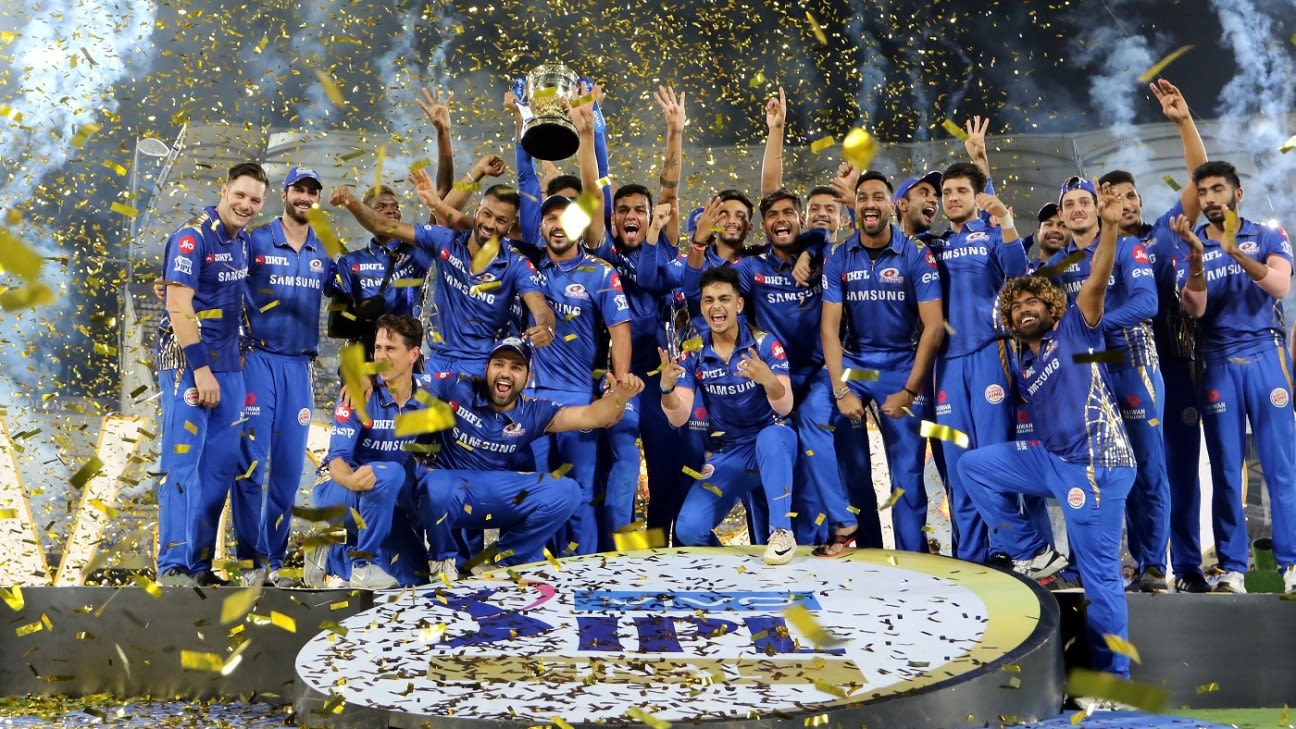The BCCI will give freedom to the Indian players to decide for themselves whether to return to play as and when cricket restarts in the country. That is the assurance given by Rahul Johri, the BCCI chief executive, who said player safety would be given “paramount importance”. Johri also said the board remained “optimistic” about the IPL taking place after the Indian monsoons subject to clearance from the federal government.
The IPL was postponed indefinitely by the BCCI in April in the wake of the Covid-19 pandemic which put the world in a lockdown. This week, the Indian government, while extending the lockdown in the country until May 31, said sporting facilities and stadiums could re-open but behind closed doors. However, the directive, issued by the Indian Ministry of Health, also said that sports gatherings would not be allowed thus leaving a question mark over when sport would be safe to return.
ALSO READ: Cricket’s comeback from Covid-19: the state of the game
Reacting to the government’s directive, Arun Dhumal, the BCCI treasurer, said that the board would continue to wait for restrictions to be eased further before asking players at all levels to return to training. Dhumal also said that the BCCI would not “jeopardise” the situation by rushing the players back and endangering their safety.
Johri, who recently got an extension from BCCI by a year (until March 2021), echoed similar sentiments. “Safety of every individual is of paramount importance and every individual has the right to decide on their safety and one should respect that,” Johri said during a webinar organised on Wednesday by Twenty First Century Media.
According to Johri it was also far too early to get excited about the IPL. “Our approach is to keep watching the situation. We are going to be guided by the Government of India in its entirety, whatever are the government guidelines is what we’ll follow. We don’t want to get ahead of ourselves on anything and that is why if you’ve seen the BCCI advisory, it says cricket is suspended till further notice. And we are engaging with various agencies on a continuous basis.”
Indian players have been forced to stay indoors since mid-March when the first phase of lockdown commenced. India’s next international assignment scheduled is in July with a limited-overs series in Sri Lanka. Dhumal had said although Sri Lanka Cricket was keen to host the Indians, unless domestic flights resumed in India, it was too early to predict the fate of that tour. The Indian government announced on Wednesday that domestic flights would operate gradually from May 25.
0:54
The India captain speaks about what it would be like to play cricket behind closed doors
Johri said any talk about resuming cricket in the India could only happy after the monsoons, which usually last at least until the end of September. “Cricketing activity in earnest can start practically only after the monsoon season. That is a window…hopefully things will improve and give us more variables which we can control and accordingly take the decision.”
Keeping in mind the lockdown restrictions imposed by various countries, Johri was asked whether the IPL could take place with predominantly Indian players. He said the tournament could not take place without overseas names. “The flavour of the IPL is that the best players around the world come and play, and everyone is committed to maintaining that flavour. Of course, it is going to be a step-by-step process, so you cannot expect normalisation tomorrow.
ALSO READ: How are cricketers keeping fit in lockdown?
“We need to wait for the overall environment to become conducive. We need to factor what the government advisories will be. Right now there are no flights. At some point flights will open and everybody needs to quarantine themselves before playing. How will that impact the schedules because as it is the schedules are extremely tight.
“Just imagine if you add 14-day quarantine prior to you starting practice also what impact that has on schedules. So there are a lot of moving parts. Having said that we stay optimistic. Hopefully the situation post the monsoon will improve and we approach it that point of time.”
Johri also touched on how the pandemic would disrupt the world’s busiest domestic cricket calendar. There are more than 2000 matches orgainsed across different age groups in both women’s and men’s cricket with several tournaments spread across the densely packed Indian home season which usually begins in October and stretches until end of May.
“Domestic cricket is the bedrock of Indian cricket,” Johri said. “What people don’t realise is we conduct over 2000 games in a six-month season of domestic cricket. In this changing scenario the scheduling of domestic cricket needs to be completely relooked at because today there is a team which can travel 50 kilometres to play a match or 3000 kilometres to play a match. Everybody plays every other team home and away. Now in this scenario where travel is restricted, where players’ safety, support staff safety is of paramount importance, how do you conduct these leagues? It is a discussion that will be had and interesting options will have to come up. Innovation will be the key in this.”
